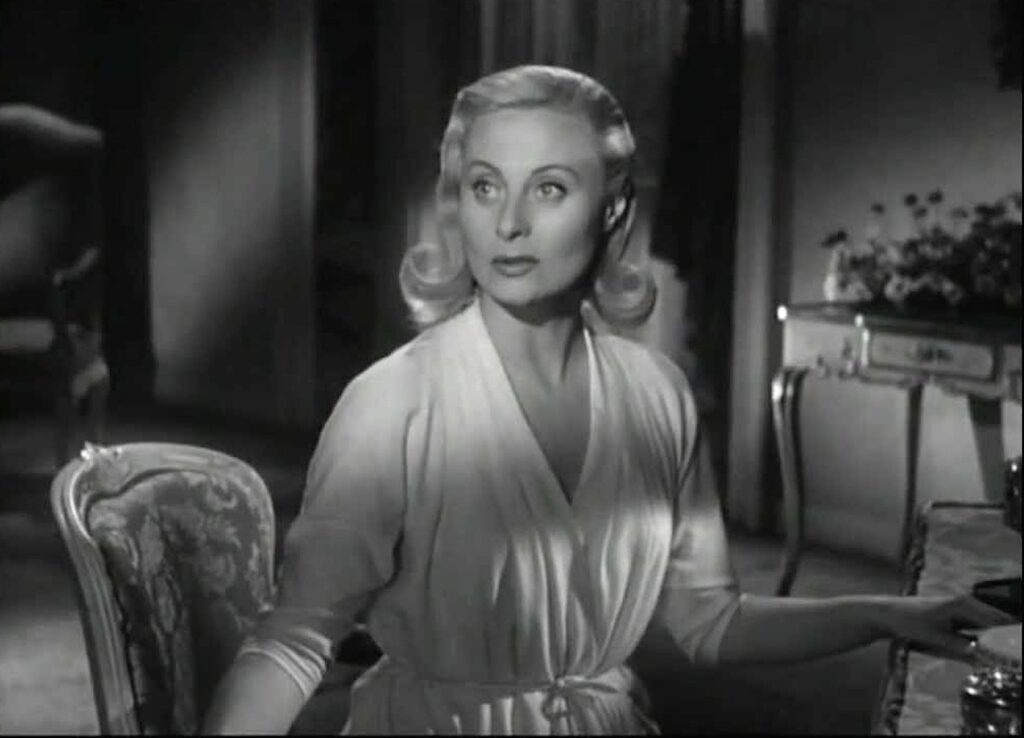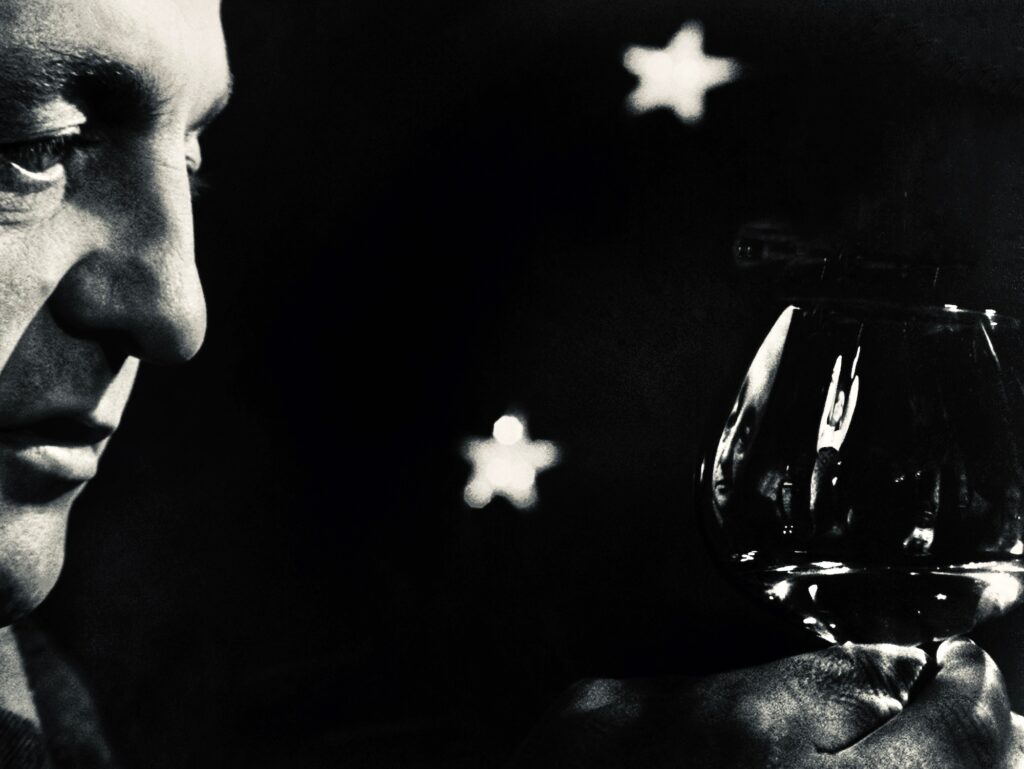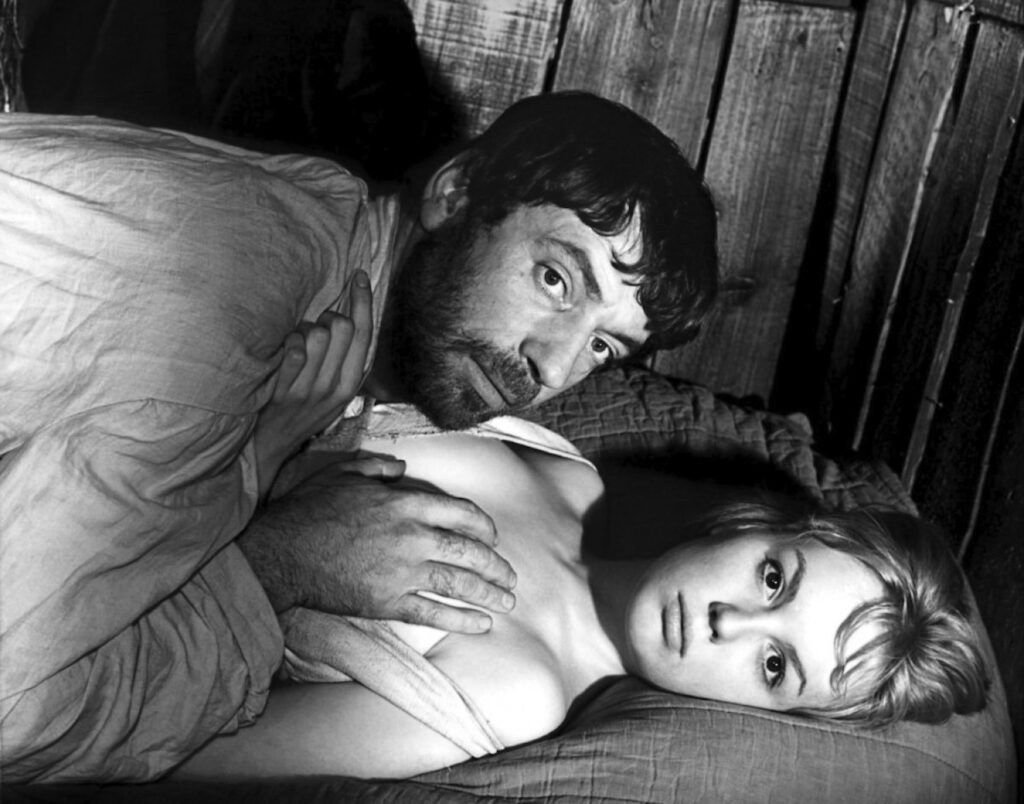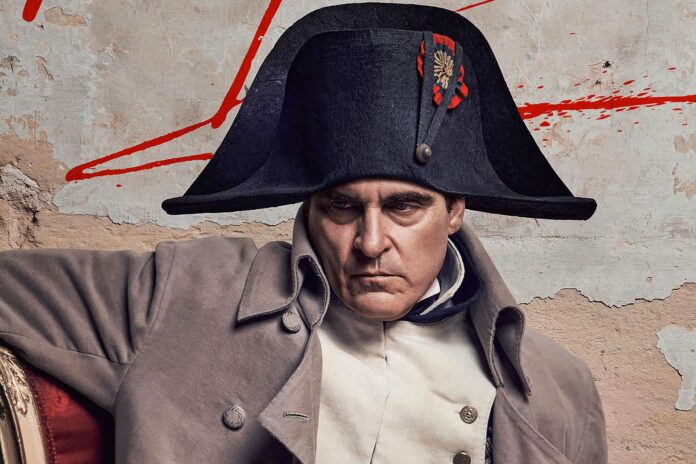Napoleon Bonaparte is the perfect illustration of the “great man” theory of history: The individual as born leader, a sort of natural phenomenon before whom the masses of humanity part like the Red Sea supposedly did for Moses. His conquering brass, fueled by pure restless drive rather than any great patriotic, philosophical or ancestral “right,” still makes him a tribute to the glory of France—otherwise seldom a great empire-builder—in some eyes. Though to much of Europe and beyond (he had his finger in pies as distant as Haiti and the U.S. South), he was simply a “great,” inexplicable, endlessly invading scourge. As many as seven million people may have died as a consequence of his lust for acquisitive power, less than half of those actual soldiers, the rest war’s “collateral damage.”
In a way, it’s extraordinary that a film like Ridley Scott’s Napoleon even gets made now, as such giant historical epics started going out of fashion in the mid-1960s. There may have been over two dozen equally costly movies in the Marvel Cinematic Universe so far, with no end in sight, but they are far less financially risky—an enterprise of this ilk seems almost mad in today’s cultural climate. (Not to mention that this director’s impressive medieval epic The Last Duelreinforced that view by bombing two years ago.)
Though like many viewers, my favorite Scott films are early ones (esp. Blade Runner, Alien and The Duellists), over the last three decades he’s increasingly been drawn towards spectacles of this sort. And whether they’ve been received well (Gladiator) or poorly (Exodus: Gods and Kings, 1492: Conquest of Paradise), they’ve all demonstrated that he’s perhaps the only director left both allowed and suited to regularly stage the kind of sprawling costume “cast of thousands” pageantry that last flourished in the mid-century heyday of CinemaScope.
Napoleon is close to three hours long, but it never feels slack; there is vitality as well as elegance to its flow, highlighted by huge battle sequences that each have their own distinctive character. Savor Ridley Scott’s populist yet refined craftsmanship while you can—he may show no signs of slowing down, but the man is 85 years old. The film is extravagant without ever being excessively “pretty,” detailed without being fussy. (The otherwise ugly fashions of the early 19th century allow you to appreciate that perhaps no other movie has ever displayed so much elaborate brocade work.) I’m glad Scott got to make Napoleon, a subject that has magnetized equally ambitious filmmakers from Abel Gance to Kubrick, though the latter ultimately decided it was one impossible to realize. Stanley may have been correct on that score, because the problem with Napoleon is that it’s about Napoleon.
Who was he? What was he? Those questions feel unaddressed after 158 minutes here, though admittedly they may seem less evaded in the director’s cut (with an additional hour and a half) Scott promises will be on AppleTV+ at some point. David Scarpa’s screenplay inevitably ends up seeming like a series of biographical bullet points, leaping from one big moment to the next with little or no connective tissue.
We meet titular figure before the Siege of Toulon in 1793, a tactical triumph that greatly boosted his career, and follow him in spurts to his death in 1821 exile at age 51. But 48-y.o. Joaquin Phoenix seems that age from the start, dyspeptic and weary. The sour, closed-in personality he assumes here never opens up, despite some of the actor’s usual surprising and eccentric moments. Napoleon’s motivation for bringing so much of the world to its knees may forever remain at least a partial mystery, but we need some insight to sustain a dramatic depiction, and none is forthcoming here. It’s an oddball performance that suggests no one here ever quite figured out a path inside the Emperor’s head.
The means to that end Scarpa attempts is by hinging all non-political or combat sequences on Empress-to-be Josephine (Vanessa Kirby), positing their relationship as the Great Love of at least her spouse’s life. But as written and portrayed, he’s off-putting and inscrutable, not to mention bad in bed. She’s peevish and unfaithful, introduced in a manner such that at first we assume she is a high-end courtesan.
Surely theirs was a complicated match—they remained on good terms even after her inability to produce an heir led him to an annulment and second marriage. But despite all onscreen head-butting, we’re still expected to “care” about them as a couple, providing the film its emotional center. That center rings hollow, because these two-dimensional gorgons don’t really seem to need anyone but themselves. Which might have been rich fodder for a movie more intimate, and humorous, than this humungous Napoleon.
Irregardless of the film’s length, subsidiary characters seldom have space to make more than a fleeting impression—it’s a relief when Rupert Everett shows up late as the Duke of Wellington, asserting himself with just one prolonged sneer. But then, this Napoleon always seems defensively isolated from others, and Phoenix’s roles usually are (or become) that of loners. He can be a brilliant actor when a part is about that alienation, whether in Gladiator, The Master, Her, You Were Never Really Here or Joker. Still, some degree of insight is required for us to have any comprehension how a man this peculiar was able to nonetheless marshal enormous forces to conquer much of Europe through sheer force of will.
One can imagine explanatory charisma as well as organizational genius coming across via Jack Nicholson, Kubrick’s choice half a century ago. With Phoenix, however, an assemblage of quirks add up to something less than a person—let alone “greatness.” This gory, handsome, entertaining, episodic behemoth has nearly everything a satisfactory traditional screen epic needs, except a hero—or even antihero. The horse on the grisly receiving end of a cannon ball early on, as well as umpteen extras felled amidst spurts of CGI blood throughout, feel better defined than this never-quite-in-focus Napoleon does in his own movie. Napoleon opens Wed/22 in theaters nationwide.
One wonders what the French will make of Scott’s biopic—they didn’t much like Hollywood’s 2006 Marie Antoinette, whose central figure starts off the new film by getting the graphic exit scene Sofia Coppola had politely denied her. They’ve made their own share of variably inspired and/or bloated stabs at the same terrain, including some (like Sasha Guitry’s three-hour 1955 Napoleon) that get cited as examples of the arthritic creative complacency the Nouvelle Vague supposedly liberated the industry from as of 1960 or so.

Mid-Century Productions’ recurrent The French Had a Name For It series at the Roxie has aimed to refurbish the reputation of that era’s films, which frequently got retroactively dismissed as “le cinema du papa”—i.e. meant for your grandpa.
The latest edition encompasses a four-decade gamut of these once out-of-fashion films, many of which remain very little-known in the US. Thirteen features are packed into a pair of two-day marathons Sunday-Monday Nov. 26-27 and Dec. 3-4. Noirish melodrama is on tap in several among them, starting with the first-day triple “blonde” bill of 1946’s The Devil and the Angel (Madeleine Sologne as a blind woman entangled with Erich von Stroheim), 1958’s Secrets of a French Nurse (Estella Bain, in a “hospital noir”) and 1963’s moody island love triangle The Accident.
Simone Signoret plays working women trying to better themselves—against the wishes of criminal associates—in two 1948 titles, Yves Allegret’s Dedee of Antwerp and Maurice Tourneur’s Dilemma of Two Angels. Silvery Michele Morgan is a femme fatale as unsentimental as the title in There’s Always a Price Tag, a 1957 variation on The Postman Always Rings Twice, while considerably more vulnerable in 1953’s Jean-Paul Sartre derived The Proud and the Beautiful, in which she and Gerard Philipe are expats trapped in a Mexican village during a typhus epidemic.

Contrastingly male-driven are two highlights from French noir’s “last wave”: Lino Ventura as a man seeking to avenge his wife’s murder in the 1959 gritty street thriller Witness in the City (directed by Edouard Molinaro, who’d later pull an about-face with La cage aux folles); and Bernard Blier as a bourgeoise creep who impulsively kills a young woman, then finds himself trying her falsely-accused boyfriend for the crime in George Lautner’s 1962 The Seventh Juror.
A trio of dramas from the Thirties show top earlier Gallic stars in top form. Julien Duvivier’s 1935 Escape from Yesterday aka La Bandera provides Jean Gabin with a breakthrough role as a Legionnaire on the run from a crime of passion. In Curtis Bernhardt’s 1938 Crossroads, Charles Vanel (still on the early side of a seventy-six-year film career) plays a wealthy industrialist whose amnesia after WW1 service is exploited by blackmailers. The following year’s There’s No Tomorrow from Max Ophuls (another Jewish German director stopping in France en route to Hollywood while fleeing the Nazis) has glamorous Edwige Feuillere as a disgraced widow turned nightclub hooch dancer who feigns upper-class respectability one last time to fool a visiting former amour.

Signoret and Yves Montand get top-billed in 1957’s The Crucible, but the main attraction here is Arthur Miller’s play, adapted by Sartre. Dramatizing the witch trials of Salem, its Puritan-era implied critique of McCarthy “red scare” hysteria was too hot for Hollywood producers at the time. If you’ve only seen it on stage, or in Nicolas Hytner’s overheated 1996 film version with Daniel Day Lewis and Winona Ryder, Raymond Rouleau’s French-East German coproduction should provide something of a revelation—particularly since it was very hard to see for decades.
Miller claimed to dislike it, though others have speculated that the real cause of his opposition may have been that Montand (though married to Signoret) had an affair with the playwright’s then-wife Marilyn Monroe when they worked together on her final film a few years later. Adding insult to injury, it can’t have helped that the movie in question was called Let’s Make Love. For info on the entire The French Had a Name For It ’23 series, go here.







